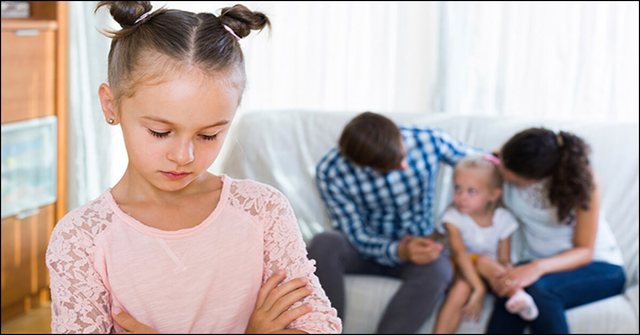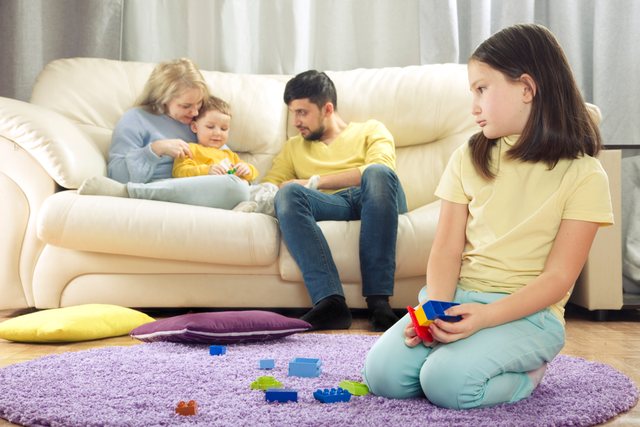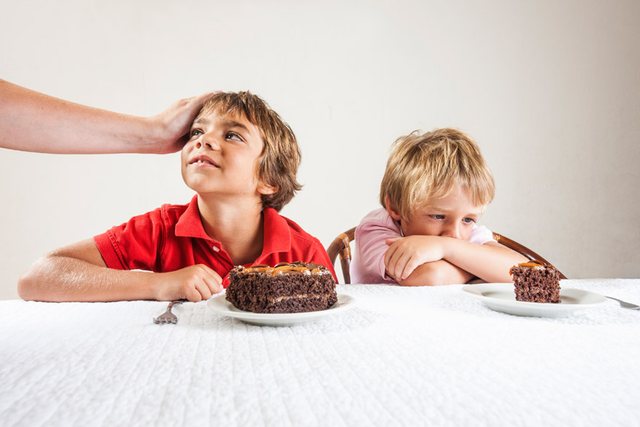
How is it that you feel that your parents do not love and treat you like your other siblings? Those who have tried it know that not only is it not a good feeling at all, it is something that leaves a mark for life.
If you are a parent you have to understand that the differentiation of children is wrong. The following stories taken from pernenat.al will make you realize that something like this, seemingly insignificant, can greatly influence your child's character formation and psychology.
Adia says she never suspected that her mother had a favorite child, and that this child was not her.
Already a mother of three young children, the 27-year-old recalls that her father left when she and her sister were very young.
â??I remember my dad protecting me once when I was about 12, telling my mom that she couldn't choose to love one girl more than the other. That was the last time my mother left home, â?she says.
Adia, who has consulted with her mother's psychologists for years, says she still struggles to accept the change in the way she and her sister were treated a year older by their mother.
"Differentiation continues to this day," she says. â??My mom spent £ 6,000 on my sister's wedding and organized a big party as I got married recently. She paid for only half of my bridal gown and gave me a gift a few weeks later. She wasn't involved in the wedding preparations at all because she couldn't find time. "
Adia's great fear is that differentiation and favoritism is passed down from generation to generation.
â??My mother has disappointed my children several times, canceling last-minute arrivals on their birthdays, and now my sister is pregnant. I'm waiting to see if her kids will get more attention than my kids. If I see my mother behaving better with her children, then my relationship with her will end. I will not let my children feel the pain I have felt. "
However, Adia is not the only one. In a recent study in England, 85% of respondents believed that their mothers had a favorite among their brothers and sisters. The discovery of findings after many years of research on parenting has revealed that many parents admit they have a favorite child.
But according to professors who have studied favoring a child, it can lead to serious problems. This can have dire effects on their self-esteem.

Sarah grew up knowing - and admitting - that she was her family's "black sheep"; that her sisters were loved and that her parents loved them the most.
She was raised in a family that from the outside looked very happy, her mother was a nurse, her father a doctor. But later Sarah realized the hidden dynamics of things:
â??I discovered when I was 11 years old that I was illegitimate. My mother was pregnant and single when she met the medical student she married. In their minds I was not the daughter of a doctor like my sisters, but I was merely a descendant of a man whatever, "she says.
Now in her 50s, Sarah has no doubt that her parents loved her and loved her less than her sisters.
â??When I started school, I was left alone and alone. Mother was proud of telling people that she could stay in work until late because I came home alone, cooked my own food and slept on my own. When my sisters were born, they had a childhood unlike me. They were never left alone. They were emotionally and financially favored. They got birthday presents and I didn't. â?
Such early mistreatment has affected Sarah throughout her life, but their favor also signaled to her sisters:
â??My sisters feel guilty because of the attention they received from my parents. And because of the way they were treated as children, they now feel very responsible that they cannot make mistakes and that they have to be better than the people around them. As a result, they both had very bad relationships with men. "
Sara is sure that it is worse to be in a family having a favorite child than to be in a family without love. It's not just that the "unappreciated" child feels they don't love him. Other siblings feel a lot of pressure to be perfect, and to be a parent copy all the time. They grow up with this massive fear, which implies that their parents' love can go away as it has been for their less-beloved siblings.

Researchers say favored brothers and sisters will feel satisfied and relieved because they are, but on the other hand, with or without awareness, they will feel guilt and lack of security as they know that their parents' love is not unconditional.






